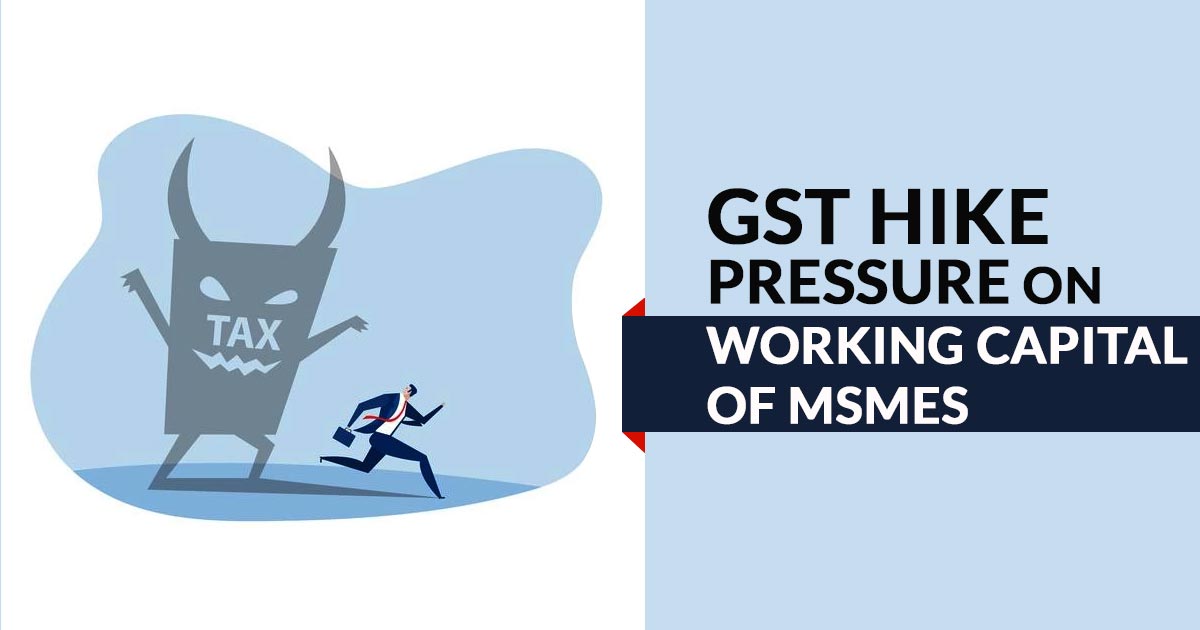
The latest hike in the GST upon the finished goods like apparel, textiles, and footwear shall have a fiscal impact on the Micro, Small, and Medium Enterprises (MSMEs) which are present at a larger scale.
GST rate on fabrics rises to 12% from 5% and on any type of apparel held with any value is raised to 12% with respect to the previous period when the cost of pieces held up to Rs 1000 is directed to 5% GST.
Under MSME registration portal Udyog Aadhaar the total textile manufacturing MSMEs registered between September 2015 to June 2020 were 6,51,512 while apparel MSMEs were 4,28,864.
Upon the working capital need of the industry mainly MSMEs the increase in the GST will cause bigger stress.
“The tax expert mentioned that Tax rate increase could put an additional financial burden on the MSME section of the industry, which is already under stress due to slower sales and higher input costs. It may also lead to an increase in cost for end consumers.”
“However, the decision to bring uniformity in tax rates across the supply chain should help the industry in the long run by releasing the blocked working capital in form of accumulated ITC, he added.”
The major goal of the stated rise is to amend the exceptions linked through the refund of the GST ITC upon the concern of an inverted duty structure.
Inverted duty structure pointed to more tax implemented on input and lower tax on the finished product. In short, a business gives more GST rates on the raw materials as compared to the finished products. GST officials discussed the issue of an inverted duty structure for various industries, but it is only subjected to footwear, textiles, pharmaceuticals, and fertilizers till now.
Refund of the unutilized ITC under the inverted duty structure of GST has been a long-pending issue for businesses because of higher levies on raw materials compared to the finished goods.
“By removing the cost differential that existed, the effect is that all apparel and footwear will attract a higher tax rate. It will be the MSMEs that get hit the hardest as there will be an increase in the prices of these products. Working capital requirements will also increase,” said the tax expert.
Tax expert sees that a tax variation upon the ground of the price was difficult towards small industries because it supports them to maintain the less cost for the sector which was furnishing non-premium/non-luxury items.
“The uniform rate will make it harder for the sector to keep afloat. The other impact would be that it might lead to smaller players being pushed into the unorganized sector,”
Tax experts mentioned that the rise in the rise in GST rate on the apparel and clothing accessories even if the value per piece is supposed to surge MSMEs working capital needs and the effects the need of the textile goods.